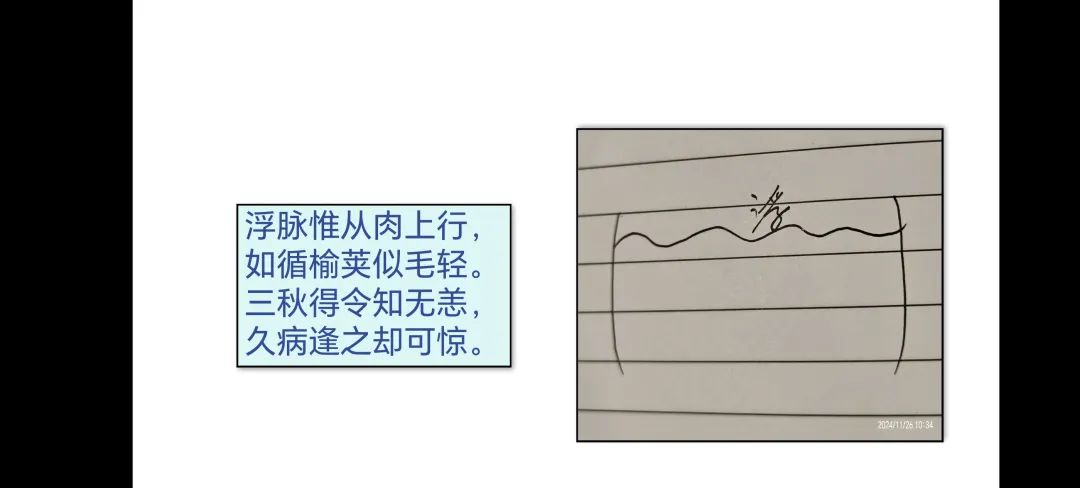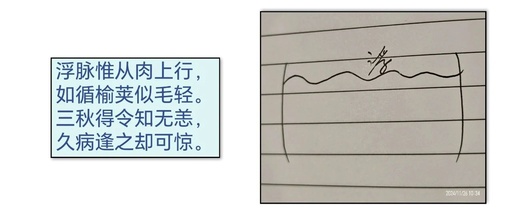Floating Pulse is characterized by a strong presence when lifted and a weak presence when pressed (as stated in the Pulse Classic). It resembles the gentle breeze ruffling the feathers on a bird’s back, light and fleeting (a description of its subtlety), akin to the floating of the Yuan (Elm) pods (as mentioned in the Inner Canon of Huangdi), like wood drifting on water (as noted by Cui), or like twisting the leaves of scallions (as described by Li). The floating pulse signifies a light and clear presence above, represented by the Qian (Heaven) hexagram, associated with autumn, and linked to the lungs, also referred to as 毛 (Mao). If excessive, it feels firm in the center and weak on the sides, resembling the feel of chicken feathers, indicating an external illness. If insufficient, the qi feels weak and the illness is internal. The Pulse Treatise states that if it feels excessive, it indicates a combination of floating and surging tightness, which is not a true floating pulse.
『Similarities Poem』
Floating is like wood floating in water, large and hollow is Qiao (Kao).
When it floats with a pat, it is a Hong (Surging) pulse, though it may seem abundant, it departs slowly.
The floating pulse is light and flat like twisting scallions. When it feels weak, it is large and hollow.
When floating and soft, it is Ru (Soft), scattered like willow fluff with no fixed trace.
Floating and strong indicates Hong (Surging), floating and slow indicates Xu (Deficiency), excessive Xu leads to San (Scattering), floating and weak indicates Qiao (Kao), floating and soft indicates Ru (Soft).

『Main Disease Poem』
The floating pulse indicates a Yang exterior disease, with symptoms of wind, heat, tightness, and cold constriction.
When floating and strong, it often indicates wind-heat; when weak and floating, it suggests blood deficiency.
A floating pulse at the inch position may indicate headaches and dizziness due to wind, or the presence of phlegm in the chest.
At the guan position, earth is weak while wood is strong, and at the chi position, urination may be obstructed.
The floating pulse indicates exterior conditions; strong indicates excess, weak indicates deficiency, floating and slow indicates wind, floating and rapid indicates wind-heat, floating and tight indicates wind-cold, floating and slow indicates wind-damp, floating and weak indicates heat injury, floating and Qiao indicates blood loss, floating and Hong indicates deficiency heat, floating and San indicates extreme fatigue.

